
Published: January 2026
Last Update: february 2026
Generally Common blue collar jobs profiles include Skilled welders, electricians, plumbers, fitters, drivers, mechanics, carpenters, and machine operators and many others profile mostly working in key industries like manufacturing, construction, automobile industry . Depending on the role, workers can be unskilled, semi-skilled, or highly skilled professionals. Blue collar jobs are practical roles where people use their hands, physical strength, or technical skills to complete tasks. These jobs are found across many industries such as construction, manufacturing, transportation, agriculture, mining, and repair services.
The Blue Collar Jobs are the backbone of industries—whether it’s building infrastructure, producing goods, or keeping transport and utilities running. Blue-collar workers play a vital role in supporting the economy and ensuring essential services reach people every day.
Blue collar jobs is work where you use your hands and your body. These workers build things and fix things. You see them working on building sites, in factories, on farms, in mines, or driving trucks and buses. Examples of these workers are: welders, electricians, plumbers, drivers, and machine operators. These jobs are very important. They build our houses and roads, and they keep everything in our daily life working. Some workers are just starting (unskilled), some have a little training (semi-skilled), and some are expert trained (highly skilled).
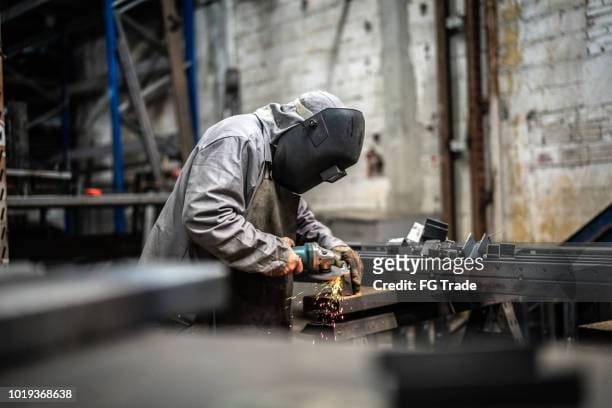
💸 Salary: 7 to 8 Lac P.A 📍 Location: Latvia 🕒 Working Hours: 40 hrs/week 🗣️Language: Basic English
Apply Now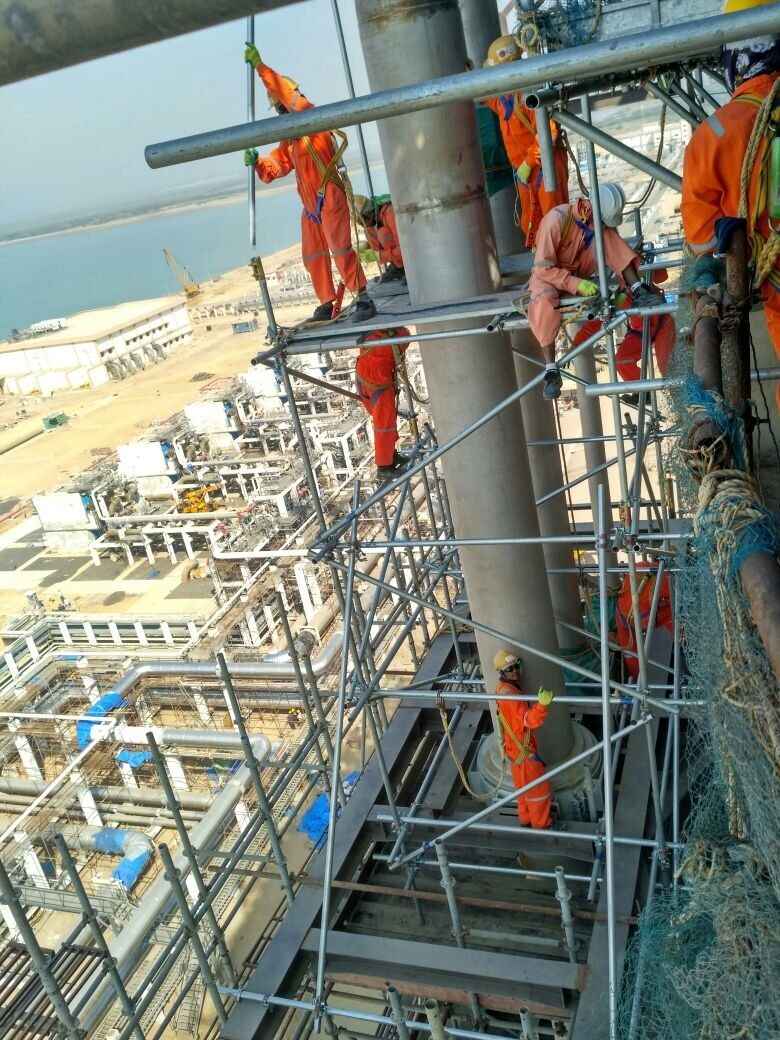
💸 Salary: 6 to 8 Lac P.A 📍 Location: Romania 🕒 Working Hours: 40 hrs/week 🗣️Language: Basic English
Apply now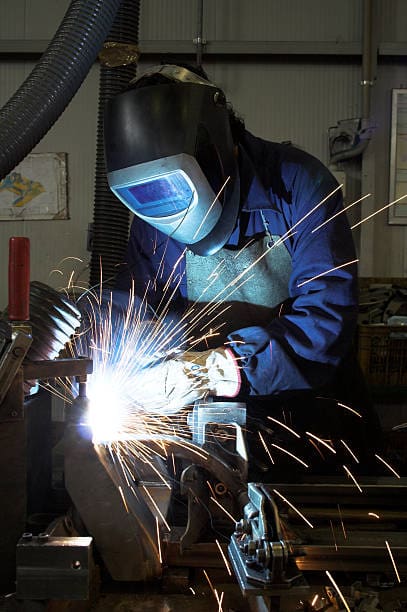
💸 Salary: 6 to 8 Lac P.A 📍 Location: Russia 🕒 Working Hours: 40 hrs/week 🗣️Language: Basic English
Apply now
💸 Salary: 7 to 8 Lac P.A 📍 Location: Serbia 🕒 Working Hours: 40 hrs/week 🗣️Language: Basic English
Apply now
💸 Salary: 7 to 9 Lac P.A 📍 Location: Israel 🕒 Working Hours: 40 hrs/week 🗣️Language: Basic English
Apply now
💸 Salary: 7 to 8 Lac P.A 📍 Location: Oman 🕒 Working Hours: 40 hrs/week 🗣️Language: Basic English
Apply now
💸 Salary: 6 to 8 Lac P.A 📍 Location: Qatar 🕒 Working Hours: 40 hrs/week 🗣️Language: Basic English
Apply now
💸 Salary: 7 to 8 Lac P.A 📍 Location: France 🕒 Working Hours: 40 hrs/week 🗣️Language: Basic English
Apply now
💸 Salary: 7 to 8 Lac P.A 📍 Location: Latvia 🕒 Working Hours: 40 hrs/week 🗣️ Language: Basic English
Apply now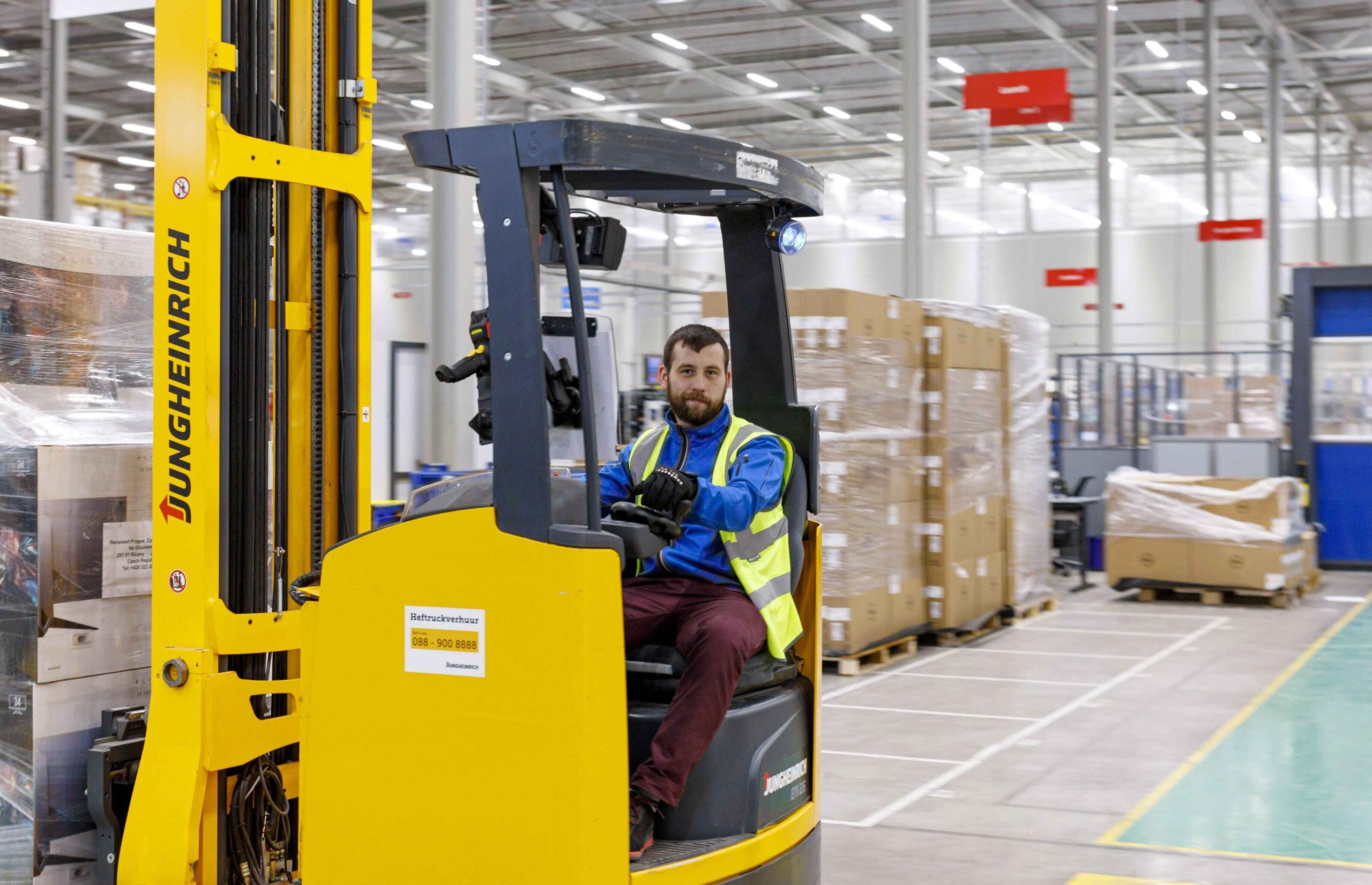
💸 Salary: 5 to 8 Lac P.A 📍 Location: Sweden 🕒 Working Hours: 40 hrs/week 🗣️Language: Basic English
Apply now
💸 Salary: 6 to 8 Lac P.A 📍 Location: Slovakia 🕒 Working Hours: 40 hrs/week 🗣️Language: Basic English
Apply now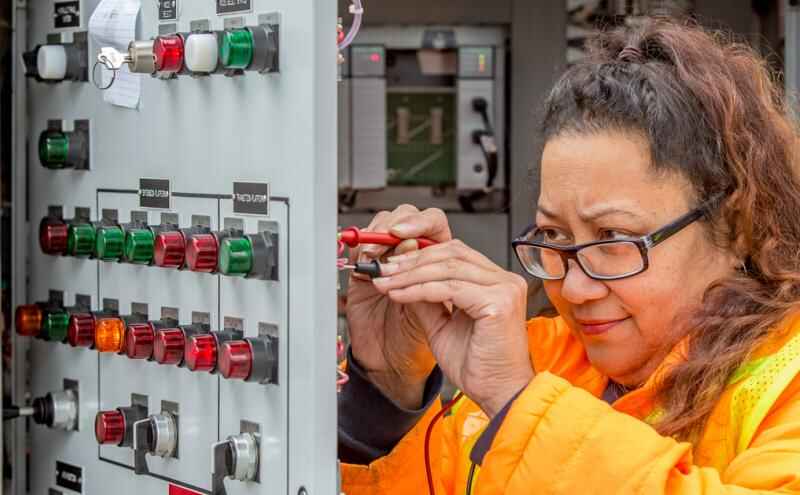
💸 Salary: 7 to 9 Lac P.A 📍 Location: Spain 🕒 Working Hours: 40 hrs/week 🗣️ Language: Basic English
Apply now
💸 Salary: 7 to 8 Lac P.A 📍 Location: France 🕒 Working Hours: 40 hrs/week 🗣️ Language: Basic English
Apply now
💸 Salary: 7 to 8 Lac P.A 📍 Location: Russia 🕒 Working Hours: 40 hrs/week 🗣️ Language: Basic English
Apply now
💸 Salary: 5 to 7 Lac P.A 📍 Location: Serbia 🕒 Working Hours: 40 hrs/week 🗣️Language: Basic English
Apply now
💸 Salary: 7 to 9 Lac P.A 📍 Location: Oman 🕒 Working Hours: 40 hrs/week 🗣️Language: Basic English
Apply nowProfile: A Carpenter is a skilled worker who builds things and fixes things that are made of wood. They work with materials like wood, plywood, and thin wood covers (laminates). They use both small hand tools and big power tools to do their job. Their main goal is to make products that are strong, correct, and useful for people in their homes, offices, and factories.
Profile: An Electrician is a trained person who works with electricity. Their job is to put in (set up) and fix all the electrical parts. They work in your house, office, or factory. They take care of wires, lights, plugs, and electric machines. They must make sure the power is working well and is safe. They need to know about electricity and always follow the safety rules.
Profile: A Welder is a trained worker who joins two pieces of metal. They use strong heat and special machines to stick the metal together. Welders work in places that build roads, make ships, build cars, or make new products. Their job is very important to build and fix metal tools and parts. They make sure the metal is very strong and will not break easily.
Profile: A Plumber is a skilled worker who deals with water pipes and drainage systems. They put in (install), fix, and look after all the pipes and fixtures in homes, offices, and factories. Their job makes sure that the water flows safely, the drains work right, and there are no leaks. Plumbers also set up the sinks, toilets, and heating systems in places like kitchens and bathrooms.
Profile: A Fitter is a trained worker who deals with machines and mechanical parts. Their job is to put together (assemble), set up, fix, and look after big mechanical systems and machines. They work in places like factories, building sites, and shipyards. They use tools, drawings (blueprints), and measuring devices to make sure all the machine parts fit perfectly so the machine runs smoothly.
Profile: A Heavy Vehicle Driver is a skilled person who drives big vehicles like trailers and trucks. They may also drive large production machines. Their main job is to move goods from one place to another. They must do this safely and quickly. They are very important in businesses that move and deliver goods (logistics and supply chains), and also on building sites. They do their work by following all the safety rules for driving and delivery.
Profile: A Machine Operator is a worker who runs and looks after big machines used in factories, building sites, or processing plants. Their job is to make sure the machines work smoothly and to check the quality of what the machine makes. They must always follow the safety rules while working. This job is very important to help the company make products quickly and correctly to reach their goals.
India: ₹15,000 – ₹40,000 per month (can reach ₹60,000 with experience & licenses).
Abroad: $1,500 – $3,500 per month (varies by country & project type, higher in oil & gas).
A Crane Operator is a skilled worker who runs very large lifting machines called cranes. Their job is to lift and move heavy things to the correct spot. They work on building sites, shipyards, factories, and in the oil and gas industry. They must handle all materials safely and work with the site team to stop accidents. Their work is very important to make sure the project is done smoothly and safely.
India: ₹15,000 – ₹40,000 per month (can reach ₹60,000 with experience & licenses).
Abroad: $1,500 – $3,500 per month (varies by country & project type, higher in oil & gas).
Profile: The main work of a fabricator is to build and restructure metal parts. They cut, shape, and weld materials based on technical blueprints. They play an important role in production, production and heavy engineering projects.
Blue collar jobs are like the backbone of many businesses. They give us important services and hard work. They are needed in every industry and help the country’s money grow by building things like roads and houses. While these jobs are very different from each other, they all have a few things in common:
In short, understanding blue collar jobs and white collar jobs shows how important these roles are. They build, maintain, and drive industries across the globe.
Even though blue collar jobs are vital for industries like manufacturing, construction, and logistics, blue collar jobs are important. They work with their hands but face many daily challenges.
Knowing blue collar jobs examples helps highlight the real-world roles affected by these challenges. Addressing these issues can improve job satisfaction and stability for workers blue collar jobs meaning.
Understanding blue collar jobs helps us see how they differ from white-collar professionals. blue collar jobs white collar jobs Learning about their jobs shows their important role in construction, manufacturing, transport, and maintenance.
These jobs are different from white-collar jobs in their work environment, pay, and skills needed. However, they are just as important for economic growth. Common blue collar jobs examples include electricians, carpenters, welders, plumbers, and drivers.
Understanding the meaning of blue collar jobs and blue collar jobs challenges helps workers and employers appreciate these roles. This can lead to better working conditions and a skilled, blue collar white collar, reliable workforce.
[contact-form-7 id=”d2f63f9″ title=”Candidate Form”]
[contact-form-7 id=”3b2dcad” title=”Employer Form”]
License No. MUMBAI/PARTNERSHIP/5493853/2021
HEADQUARTERS: 409, 4th floor, Amanora Chambers, Amanora Mall, Near Magarpatta City, Hadapsar, Pune – 411208
© 2024–2025 bcmgroup. All Rights Reserved.
Privacy Policy | About Us | Contact Us | Submit Your C.V | Submit Your Requirements